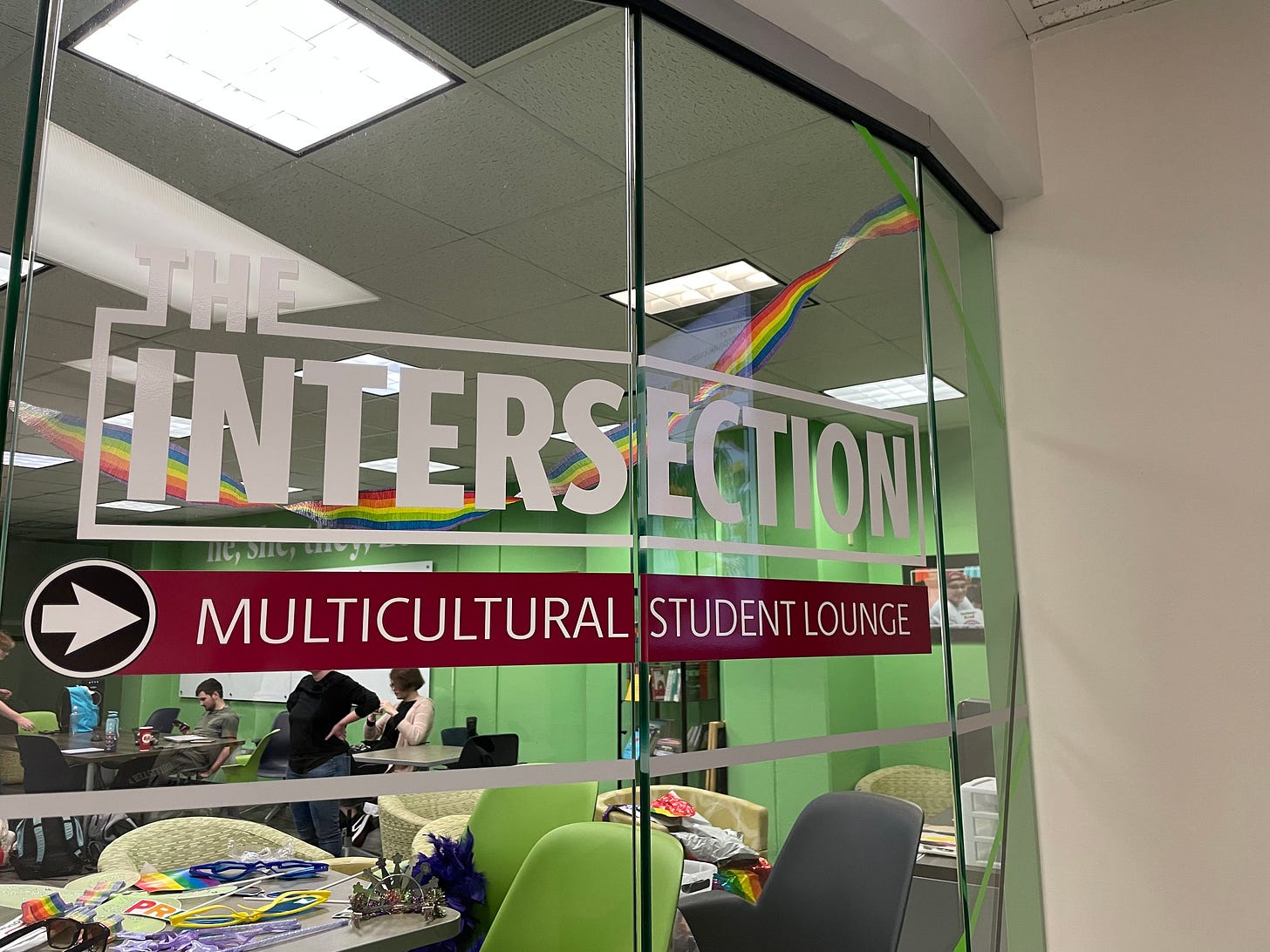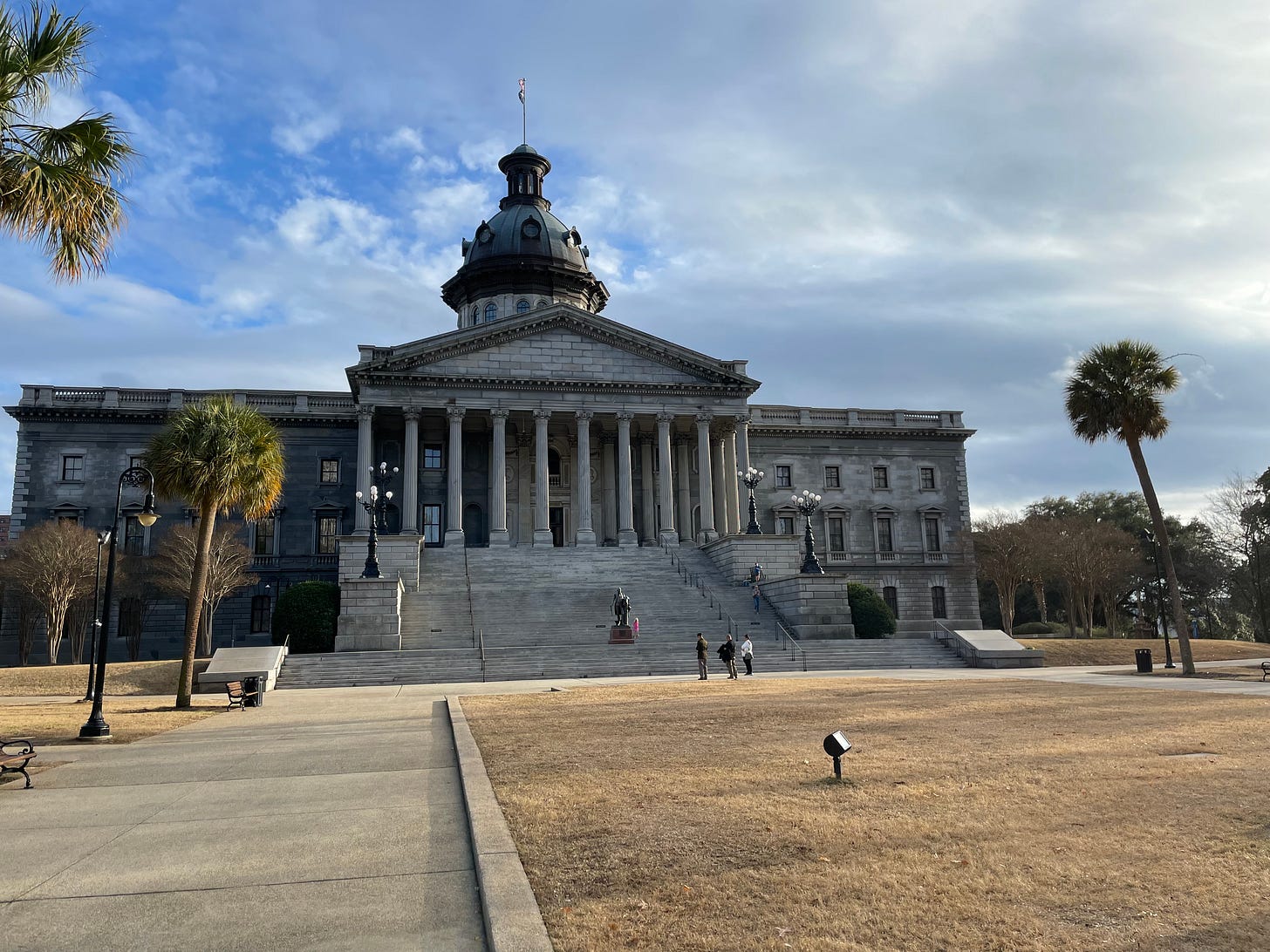SC Lawmakers introduce “Help Not Harm” Act, USC students feel it’s “pointless”
The “Help Not Harm” Act in South Carolina has received criticisms from the USC student body. The students, like senior Robbie Clark, felt infuriated at the bills and the language of the bills.
The bills were introduced to the House on Jan. 9 as the Republicans' first major vote of the 2024 session. The bills ran under the title “South Carolina Children Deserve Help Not Harm” Act.
“It really infuriates me the language that a lot of these bills and a lot of the people who support these bills use,” Clark said. “They always treat someone’s identity and coming out as a secret – and you don’t want kids keeping secrets from their parents really. It’s just kids trying to discover themselves and figure out who they are in the safest way possible.”
The act intended to block gender transitioning procedures, such as surgery or hormone therapy, for people under the age of eighteen. The act also included the ban on public funding being used for gender transitioning procedures.
Third-year USC student and South Carolina native Andrew Sobel shared Clark’s rage over the bills.
“It makes me more angry than anything else because they’re just pointles. They’re under the guise of protecting kids, but they’re very clearly designed to make it impossible for trans kids to transition and access gender affirming care- which is not protecting them.”
Andrew Sobel, third-year USC student
Sobel runs a LGBTQ event called Q’Cafe at USC’s Intersection Lounge every Thursday night during the semester. Q’Cafe is a way for young LGBTQ people at USC to hang out and do activities like karaoke or watching movies. It provides a safe space for everyone, regardless of identity or belief.

According to the Trevor Project’s 2022 National Survey on LGBTQ Youth Mental Health South Carolina, LGBTQ people reported that only 18% of families highly supported their identities. When compared to the 75% of friends who were highly supportive of their LGBTQ friends’ identities.
“I understand certain things. Like parents are gonna find out if you get like suspended or something,” Sobel said. “I never had a problem with that, but things like that I get it. But for sensitive topics like this where the parents might not be accepting- I’m lucky that mine are- it is potentially a dangerous situation to be in.”
The inclusion of requiring public school staff to report children’s different gender experiences to the legal guardians or parents affects the trust between the student and staff member. In the aforementioned survey, 40% of LGBTQ youth named school as an affirming place for them.
“It would definitely make me feel like I couldn’t trust anyone at school,” Sobel said. “If I tell a school official something in confidentiality, I don’t want them to tell my parents.”
The mandatory reporting clause places the school staff member into an ethical dilemma, according to Clark. To protect the confidentiality between them and the child or to obey the law.
“It’s such a massive betrayal of trust,” Clark said. “ If you can’t have kids trust the people they’re with 90% of their time, eight hours a day, five days a week. How do you expect them to feel comfortable in that environment and actually learn?”
The 2024 act isn’t the first time that lawmakers have affected transgender youth healthcare.
In December 2022, the Medical University of South Carolina shut down its transgender youth clinic after coming under fire from some state lawmakers. The clinic previously provided minors- with parental consent- access to transgender healthcare in the Charleston area.
Schuyler Edwards, a sophomore at USC, had tried to receive care from the clinic back in 2021.
“When the clinic shut down, I felt so hurt,” Edwards said. “The MUSC clinic was the first place I had looked to for transgender healthcare. I couldn’t get any assistance from the clinic with hormone therapy because I needed parental consent as a minor, but the clinic was still important to me.”
While the transgender youth clinic shut down, MUSC still provides mental health counseling to LGBTQIA+ people.
In the same Trevor Project survey, 56% of transgender and nonbinary youth who wanted mental health care reported that they were not able to access it.
Edwards struggled to find a therapist who he felt like he could trust. The affordability and accessibility were important to Edwards, but his priority was acceptance.
“The first therapist I had left after three months,” Edwards said. “I kept trying and trying, but then I just lost energy. It’s hard to find a therapist, especially when you aren’t out to your family.”
This article was originally created for a college course. It is posted on a class Weebly website with the consent of the journalist.
Kyaia Villegas is the editor-in-chief of The Palmetto. They created this website as a way to continue doing journalism. Their main focuses are sports and LGBTQ+ issues, both nationally and in South Carolina. If you have a comment or tip for Kyaia, feel free to contact them on social media or through email.
Follow Kyaia on Instagram kvxmedia or on Twitter/X soleiskv.





